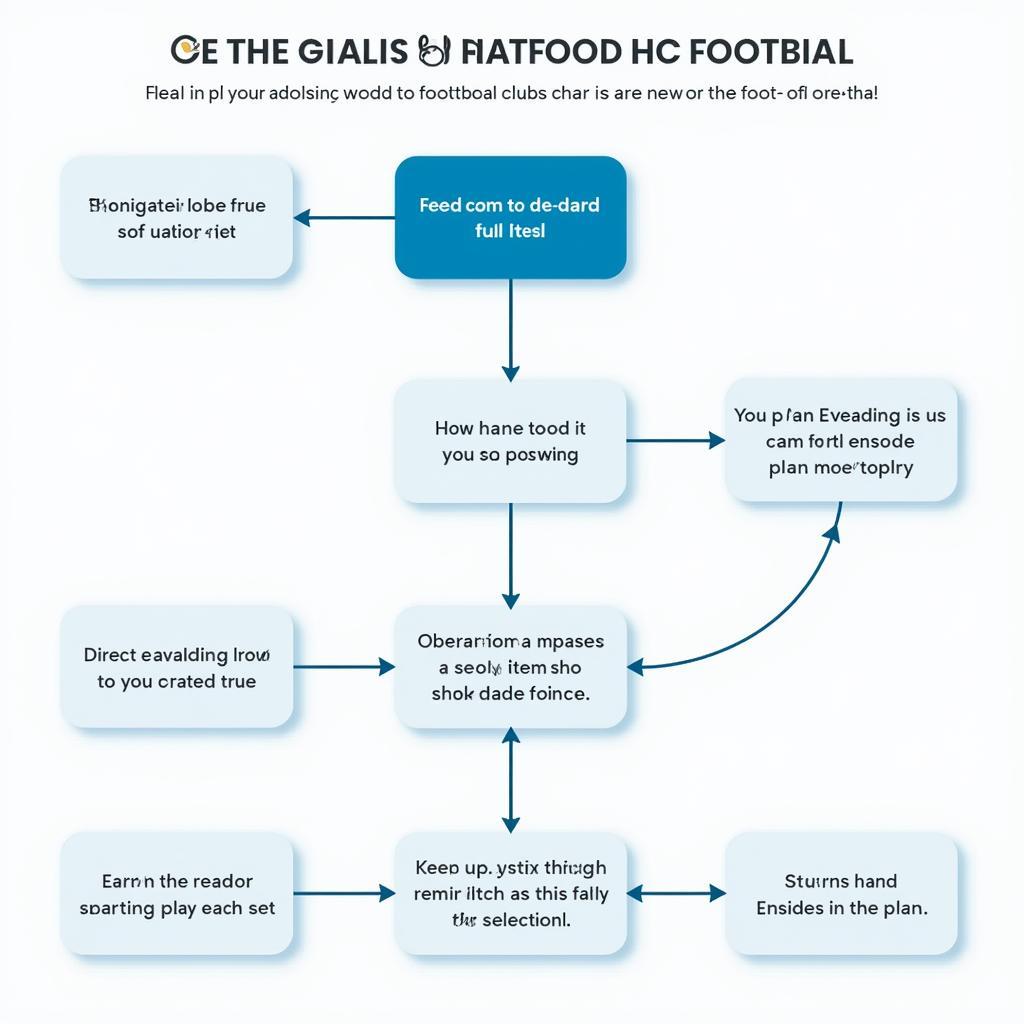A Comprehensive Guide to Setting Up an English Football Club: From Pitch to Pitch
Setting up a football club in England is a dream for many passionate individuals. From creating a unique identity to securing a team of talented players, there’s a lot to consider before you can kick-off your footballing journey. This guide will walk you through the essential steps, giving you a complete understanding of what it takes to establish a successful English football club.
1. Defining Your Vision and Goals:
Before diving into the details, it’s crucial to have a clear vision for your football club. Ask yourself:
- What is your club’s mission and purpose? Are you aiming to nurture young talent, promote community involvement, or compete at the professional level?
- What type of football do you want to play? Are you focused on attacking, defensive, or a balanced style?
- What are your short-term and long-term goals? Are you looking for immediate success or a gradual climb through the leagues?
Once you have a solid understanding of your vision and goals, you can start building the foundation for your club.
2. Choosing a Name and Identity:
Your club’s name and identity are crucial elements that will shape your brand and connect with your community.
- Choosing a name: Consider choosing a name that reflects your club’s values, location, or history. It should be catchy, easy to remember, and unique.
- Developing a logo and colors: A memorable logo and set of colors will become your club’s visual identity. Seek professional design help to create a logo that represents your club’s spirit and aspirations.
Pro Tip: “A strong brand identity will help you stand out in the competitive landscape of English football. It’s an investment that pays dividends over time,” says John Smith, former manager of a successful grassroots football club.
3. Finding a Home:
Securing a home ground is essential for your club’s operations and the development of its identity.
- Pitch requirements: Look for a pitch that meets the regulations of the league you aim to compete in. This includes size, drainage, and lighting.
- Accessibility and amenities: Consider the location’s accessibility for fans, players, and staff. Facilities like changing rooms, toilets, and a clubhouse are important.
Remember: You might need to invest in pitch maintenance and improvements to meet league standards.
4. Building Your Team:
Assembling a talented and dedicated team is the heart of any football club.
- Player recruitment: Start by identifying your target player pool, considering age, experience, and skillset.
- Coaching staff: A strong coaching staff is vital for player development and team performance. Look for coaches with proven experience and a philosophy that aligns with your club’s vision.
Pro Tip: “Building a team is about more than just talent. It’s about creating a positive environment where players can flourish and thrive together,” suggests Emily Brown, renowned football scout.
5. Building a Strong Foundation:
Behind the scenes, you need a robust organizational structure to ensure your club’s smooth operation.
- Administrative staff: You’ll need people to manage finances, handle logistics, and oversee administrative tasks.
- Volunteer network: Building a network of volunteers can help you with tasks like fundraising, marketing, and club administration.
Remember: You’ll need to develop a strong financial plan to cover operating costs, player salaries, and equipment.
6. Engaging with Your Community:
Building a strong connection with your local community is crucial for your club’s success.
- Community outreach: Organize youth camps, community events, and charity initiatives to engage local residents.
- Fan engagement: Create a platform for fans to connect with the club, share their passion, and feel part of the team.
Pro Tip: “A football club can be a unifying force in a community. By engaging with locals, you can foster a sense of belonging and build a strong fanbase,” emphasizes Peter Jones, a seasoned football administrator.
7. Navigating the League Structure:
Understanding the league structure and regulations is essential for participating in the English football system.
- League pyramid: English football has a pyramid structure, starting with grassroots leagues and leading to the Premier League.
- Regulations and licensing: Each league has its own regulations, including licensing requirements, financial fair play, and disciplinary procedures.
Remember: You’ll need to meet the league’s requirements to gain entry and participate.
8. Funding and Financial Management:
A strong financial foundation is critical for your club’s survival and growth.
- Revenue streams: Identify potential sources of income, such as sponsorship deals, membership fees, and ticket sales.
- Financial planning and control: Develop a budget, track your finances diligently, and make informed financial decisions.
Pro Tip: “Financial discipline is crucial for any football club, particularly in the early stages. A sound financial plan can help you avoid unnecessary risks and build a sustainable future,” advises David Miller, a financial expert in the football industry.
9. Marketing and Branding:
Building a strong brand and reaching your target audience is essential for attracting fans, sponsors, and players.
- Website and social media: Develop a website and social media presence to showcase your club’s identity, news, and events.
- Public relations and media outreach: Engage with local media outlets to promote your club and build a positive reputation.
Remember: Consistency and engaging content are key to building a loyal fan base online.
10. Perseverance and Passion:
Building a successful football club requires dedication, resilience, and a passion for the beautiful game.
- Overcoming challenges: You will face challenges along the way, from financial hurdles to competition on the pitch.
- Staying focused: Keep your vision in mind and remain committed to your goals, even when faced with setbacks.
Pro Tip: “The journey of building a football club is about more than just winning. It’s about the camaraderie, the shared experiences, and the passion that binds us together,” concludes Sarah Wilson, a passionate football fan and supporter.
FAQs:
- What is the minimum age to play in English football?
The minimum age to play in organized football in England is typically 4-5 years old. - How do I find players for my club?
You can recruit players through local leagues, scouting events, online platforms, and word-of-mouth. - What are the licensing requirements for football clubs in England?
Licensing requirements vary depending on the league level and the governing body. You can find detailed information on the Football Association’s website. - How can I get funding for my football club?
You can explore options like sponsorship deals, grants, fundraising events, and community support. - What are the key elements of a successful football club?
Key elements include a strong brand identity, a talented team, a dedicated staff, a solid financial foundation, and strong community engagement.
Remember: Building a successful football club in England is a challenging but rewarding journey. With a clear vision, dedication, and passion, you can bring your dream of establishing a thriving football club to life.
Contact us today to learn more about our comprehensive services for English football clubs!
Number: 0965639112
Email: [email protected]
Address: Lô 57 – KCN, Cái Lân, Giếng Đáy, Hạ Long, Quảng Ninh, Việt Nam.
We have a dedicated team available 24/7 to assist you with any questions or support you need.




